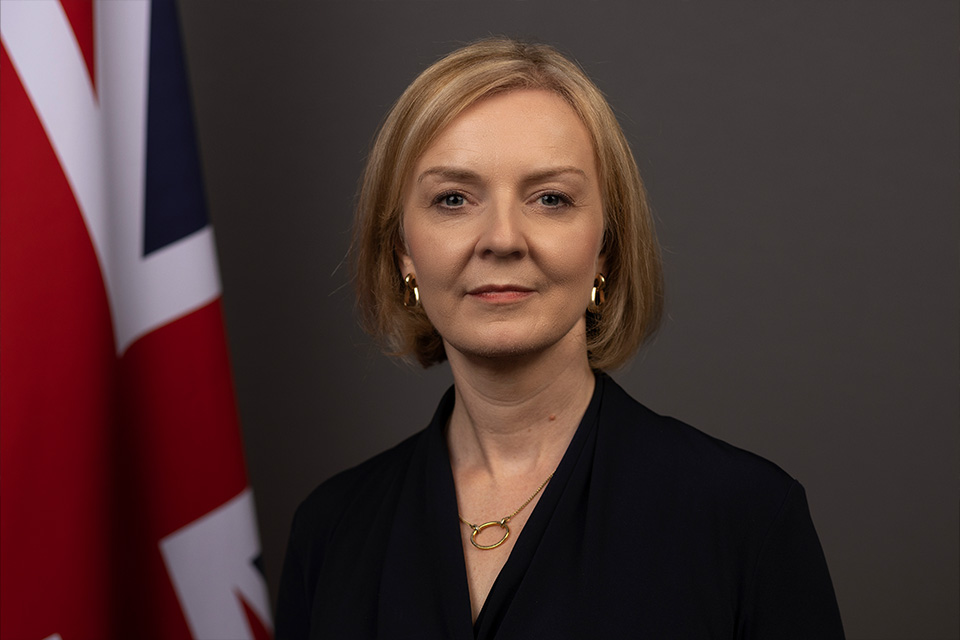Elizabeth Truss emphasises the importance of technology and maths
Education Minister Elizabeth Truss speaks at The Future of Growth Summit.

I am a great believer that more than almost anything else - what happens in classrooms today - the core education children get - will have the greatest impact on our future growth.
You might say - I would say that wouldn’t I - as an education minister.
But the evidence is there.
The correlation between international test scores at age 15 and economic growth has increased by a third in the last few decades.
Forty years ago, you could maybe have argued our economy was essentially static.
Most people expected a single career - and even employer - for most of their working lives. You might move around, and move up: but for many, the shape of their lives was influenced by your background, your local industries, your local economy.
That’s changed.
Now, with technology, and globalisation, the jobs market is much more fluid, and much more dynamic.
We’re collaborating and competing not just within our own borders - but across the world - and not just with other people - but with ever-more powerful computers and machines.
Because if we’re a highly educated society - we can take advantage of these big, sweeping trends.
This means that now there’s no longer any fixed limit on the number of high-end jobs that can be created and located in Britain.
Now, the freedom and fluidity of technology means anyone with the right skills can go on to create products and services that people want.
Now, there’s no reason why all our children shouldn’t go on and live and earn well.
One of the effects of new technology is that maths skills are more and more important - in every sector, from marketing to manufacturing. They bring analytical, reasoning and research skills that are vital in new innovations.
Maths has the highest earnings premium - up to 10% at A level - evidence of the huge demand - and employers consistently say they need skilled, maths-savvy staff. Careers in science and technology pay 20% more than average.
That’s why we recently launched the Your Life campaign last week with the Chancellor. The campaign is led by Edwina Dunn and a group of innovators in technology, engineering, finance and numerous other fields.
They want to see a 50% increase in the numbers of students taking physics and maths A level within 3 years.
They treat young people as masters of their own destiny. It targets students as decision-makers about their own career.
It is unashamedly aspirational: telling them the earnings potential and career success that maths can give.
And just as important, it doesn’t treat maths and science as subjects only necessary to go into scientific careers.
It pitches them as essential for success in any number of walks of life - because of that changing economy. Like Edwina Dunn, who pioneered Tesco’s Clubcard. Sarah Wood, who runs a viral marketing agency. Eben Upton, who invented Raspberry Pi, a new type of computer, and jets between Sheffield and Silicon Valley.
Or engineers like Roma Agrawal, who helped build the Shard. Or the 17-year-old Nick D’Aloisio, who sold an app to Yahoo! - who unfortunately couldn’t attend the launch because he was, in fact, sitting his A levels.
And that breadth is equalled in the organisations supporting the campaign.
From Airbus to Facebook, L’Oreal to Lloyds, it’s an impressive list of household names from every sector.
As well as changing students’ perceptions - we want to see these important subjects brought to life in schools through practical work and links to the exciting developments in business.
That’s what the new maths and physics chairs programme is about. Organisations like Samsung and GlaxoSmithKline are providing a salary uplift to recruit postgraduate specialists in maths and physics into schools.
These chairs inject their enthusiasm and subject expertise into schools - to raise standards and get children excited about maths and physics.
The new chairs will provide masterclasses, online lesson demonstrations. They will help link the classroom to business and universities and complement other great programmes like stimulating physics and maths hubs.
Recruitment is already underway, and the first chairs will be in classrooms from this autumn. In due course we want to see hundreds recruited. And we’re looking for more businesses to come and support them.
It’s a sign that in today’s economy, and for tomorrow’s growth - maths is absolutely essential.
If we get it right, the opportunity is huge.
And the next time the Growth summit comes around, who knows what technologies will have been invented.
Maybe we’ll all arrive in driverless cars, sit down with screens implanted on our contact lenses, hear talks from holograms - who knows?
But if we want our children to be involved in that future - to lead it, to create and thrive and invent - then we need the core education in maths and science to be world class.
Thank you. And I look forward to a good Q and A.